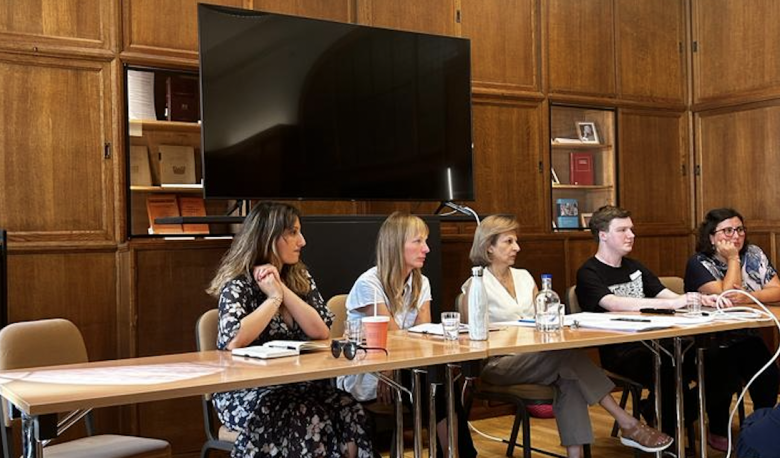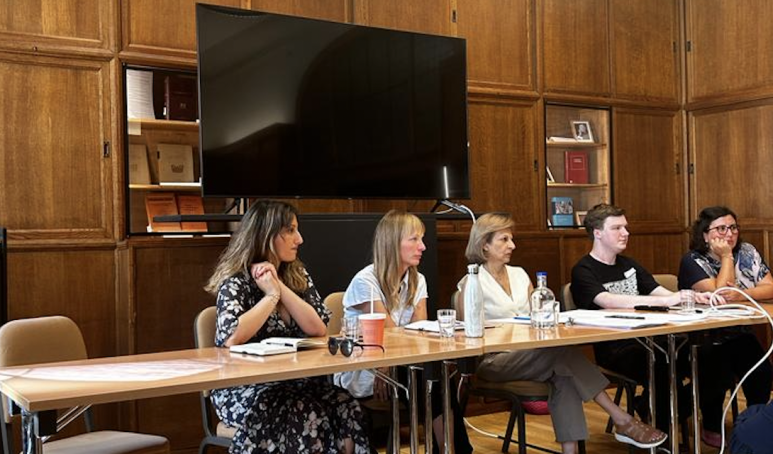The key insights from the COVINFORM project, a three-year EU funded research and innovation project, were presented in Brussels on 7 September 2023. The researchers from University of Antwerp showcase research findings that delve into the profound impact that COVID-19 pandemic had on marginalized and vulnerable groups. The presentation was part of the sister project event organised by RESPOND Project in collaboration with PERISCOPE Project , RESISTIRÉ, SHARE – Survey of Health, Ageing and Retirement in Europe and COVINFORM.
Following the presentation of the key findings, the Media Diversity Institute (MDI) held a panel discussion moderated by the renowned journalist and an independent EU commentator and analyst, Dr Shada Islam. The panellists were Dr Viktoria Adler, project coordinator from the lead partner SYNYO based in Austria, researcher Zainab Mehdi from Trilateral Research (UK and Ireland), and Andreea Furtuna, program director at the Red Cross Romania. Data scientist from Trilateral Research, Matt Buckley, held a presentation of the Dashboard containing different datasets, and offering a library of knowledge obtained over the duration of the project.

The COVINFORM project looked at the response to the COVID 19 pandemic from two different perspectives - from the perspective of governments and public health authorities as well as civil society organisations, and from the perspective of vulnerable people and groups.
As one of the main project findings, Dr Adler stated the need for redefinition of the term ‘vulnerability’. She suggested that the groups at risk could move from sections such as ‘health’ to ‘well-being’, and that vulnerability is a complex, multi-layered phenomena including always socio-economic factors and wider context.
The panellists agreed that trust has emerged as one of the main findings of their research, as the citizens were losing trust in the institutions during the pandemic. Although the public communicators tried to send a clear message and information about the pandemic, it became more and more confusing over the time.
The role of media and journalists were tackled through the the research and in the guide developed by Trilateral Research. The aim of the guide is to help us understand how communication practices were adapted (especially during the onset of the pandemic) between the journalists and official communicators to best communicate COVID-19 communication to the public who were feeling a range of emotions during the early stages of the pandemic.

